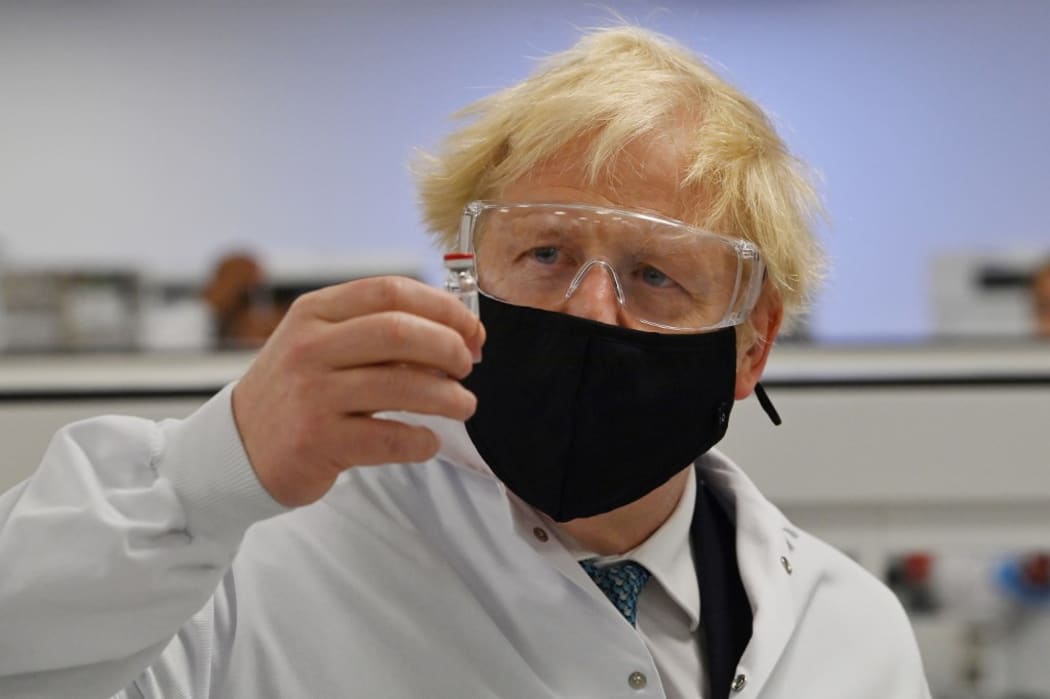The UK's third pandemic lockdown appears to be having little impact on rates of Covid-19 in England, researchers warned today, with prevalence of the disease "very high" and "no evidence of decline" in the first 10 days of renewed restrictions.

Photo: AFP
Until rates of Covid-19 are reduced substantially, health services "will remain under extreme pressure" and the number of deaths will continue to rise rapidly, researchers leading Imperial College London's REACT-1 prevalence study said.
"The number of Covid-19 in-patients (in hospital) is extremely high at the moment, and we can't expect that to drop unless we can achieve lower levels of prevalence," said Steven Riley, a professor of infectious disease dynamics who co-led the work.
"The fact that (prevalence) is not going down has potentially serious consequences."
Prime Minister Boris Johnson put England into a third national lockdown on 6 January, closing bars, restaurants and most schools, and allowing only essential shops to open.
Ministers have appealed to people to stay at home as much as they can to prevent hospitals being overwhelmed and to give authorities time to roll out Covid-19 vaccines to the elderly and those at highest risk.
Riley - presenting his latest data covering 7 January to 16 January - said prevalence rates were at 1.58 percent, the highest recorded by the REACT-1 study since it started in May 2020. This is a rise of more than 50 percent since the last readout in mid-December.
Riley also cautioned against pinning immediate hopes on Covid-19 vaccines.
"The vaccine is only going to have a very limited impact on prevalence in the short-term," he told reporters.
Paul Elliott, an expert in epidemiology and public health medicine and director of the REACT programme, said the stubborn levels of Covid-19 infection may be in part due to a more transmissible variant of the virus which emerged late last year.
"We've really got to double down on the public health measures - wear face covers, keep your distance and wash your hands," Elliott said. "There will be continued pressure until we can get the prevalence down."
Oxford scientists are preparing to rapidly produce new versions of their vaccine to combat emerging, more contagious Covid-19 variants discovered in the UK, South Africa and Brazil, according to media reports.
The team behind the vaccine from Oxford and AstraZeneca Plc is undertaking feasibility studies to reconfigure the technology, the Daily Telegraph said, citing a confirmation from Oxford University.
The scientists were working on estimating how quickly they could reconfigure their ChAdOx vaccine platform, the report said.
AstraZeneca deferred to Oxford for comment. An Oxford spokesperson said the university was carefully assessing the impact of new variants on vaccine immunity and evaluating the processes needed for rapid development of adjusted Covid-19 vaccines if these should be necessary.
British Prime Minister Boris Johnson said today that the nation's medicines regulator will be ready and able to give approval to new versions of Covid-19 vaccines designed to counter new variants of the coronavirus that may appear.
Recent laboratory tests have indicated that the Covid-19 vaccine developed by Pfizer Inc and partner BioNTech SE is likely to work against the UK variant spreading around the world.
BioNTech has said it plans to publish a more detailed analysis of the likely effect of its vaccine on the South African variant within a few days.
AstraZeneca Plc, Moderna Inc and CureVac NV are also testing whether their respective shots will protect against the fast-spreading variants.
The British government reported a fresh daily record rise in deaths on Wednesday (local time) with 1820 people dying within 28 days of a positive Covid-19 test. However, new infections - at 38,905 - were down from a recent peak of 68,053 on 8 January.
The health ministry said the full impact of the lockdown would not yet be reflected in the prevalence figures, but added the survey highlighted the importance of everyone staying at home and following the restrictions.
- Reuters






